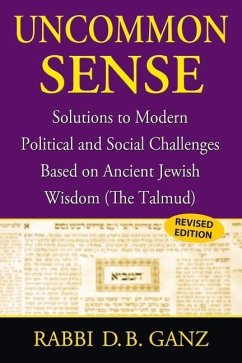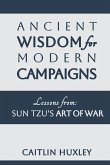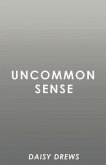Many outstanding volumes have been written on society and politics. Whether this is one of them is not for me to say. But for sure, this work is unique in at least three ways. Books on public issues tend to focus on one major topic. This one covers a series of unrelated subjects. Also, many political thinkers first take positions on a series of issues and then form their overarching beliefs accordingly. The chapters herein are mainly based on preexisting theoretical ideas, and those concepts then guide the positions formulated. Finally, the book's ideas are mainly taken from classical Jewish wisdom which - together with the Jewish Nation - has survived intact for millennia.I tried very hard to make this reader-friendly to all people, including those with no knowledge of Judaism and Talmud. Nevertheless, Talmudic thinking is subtle and nuanced and, therefore, easily misunderstood. In fact, the Talmud (Chagiga 9b) advises that studying its texts 101 times is far better than doing so "only" 100 times. As a practical matter, it might be helpful to read the segments more than once. I also advise reading the entire Foreword before proceeding on to the chapters (which can then be covered in any sequence).I wrote this book intermittently over several years. It was first published it in 2012 and later edited and expanded a few times, especially for this first-ever Revised Edition. As such, one page might dwell on what is "now" taking place in 2011, and the next page discusses 2018. It also deals with ongoing events that quickly evolve. A conundrum arose. Should I update the dates and events in cases when doing so would have no bearing on the ideas discussed? That would have entailed a lot of meaningless rewriting, so I didn't make those revisions. I hope it doesn't prove confusing to the reader. (Taken from the author's introductory note)
Hinweis: Dieser Artikel kann nur an eine deutsche Lieferadresse ausgeliefert werden.
Hinweis: Dieser Artikel kann nur an eine deutsche Lieferadresse ausgeliefert werden.








